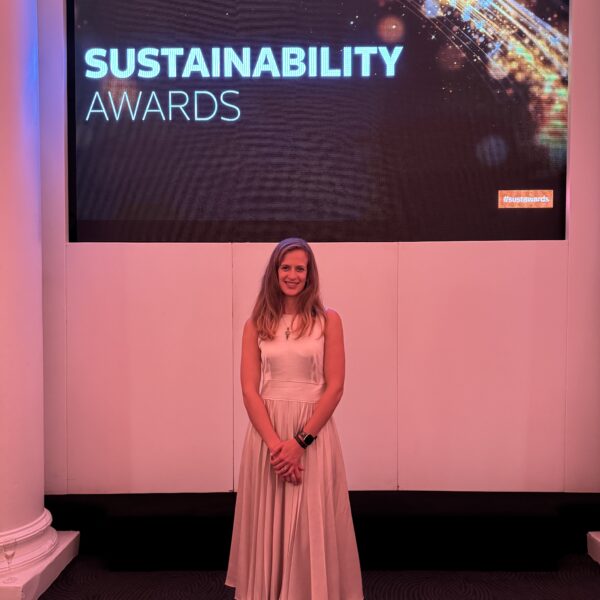Albion College alumnus Lisa Anderson earns global sustainability accolades

In today’s fast‑paced science arena, a clear demonstration of sustainability can elevate a career from local impact to worldwide recognition. Albion College’s own Lisa Anderson exemplifies how a focused undergraduate experience, combined with mentorship and hands‑on research, can lay the foundation for global influence. This article outlines Anderson’s journey, the institutional strengths that supported her, and actionable steps for students and professionals who aspire to follow a similar path.
Why Sustainability Matters for Future Careers
Public and private sectors increasingly value scientists who not only produce research but also embed environmental stewardship into their work. Sustainable practices in laboratories, supply chains, and product development reduce waste, lower costs, and protect brand reputation. Employers such as DuPont, Amyris, and major consulting firms actively seek candidates with a proven track record in environmental innovation.
For students, demonstrating competence in sustainability opens doors to scholarships, research grants, and leadership opportunities in academia and industry. A career that balances technical excellence with environmental responsibility can deliver both personal fulfillment and global impact.
Lisa Anderson: From Student to Global Sustainability Leader
Choosing Albion College: A Strategic Decision
When graduation approached in 2005, Anderson weighed several universities. She was accepted into Michigan State’s natural science program but felt the campus life lacked the close‑knit, interdisciplinary emphasis she desired. Albion College presented a small‑town atmosphere coupled with community‑driven research and a rigorous liberal‑arts foundation. By selecting Albion, Anderson positioned herself in an environment where academic advising was personalized and cross‑disciplinary collaboration was encouraged.
Mentorship and Research Opportunities
During her sophomore year, Anderson became a research intern under Professor Cliff Harris, an organic chemistry professor renowned for his guidance of undergraduates. Harris’s encouragement helped Anderson secure summer internships in lab science. When initial outreach responses were slow, Harris personally reached out to program directors, ensuring Anderson’s eligibility for a New Mexico lab placement. The internship led to a peer‑reviewed publication—a notable accomplishment for any undergraduate.
From Undergraduate to Graduate Success
Building on her undergraduate achievements, Anderson targeted graduate programs that matched her focus on biofuels and metabolic engineering. A visit to UC Davis, facilitated by Harris’s recommendation, revealed active research in algae‑based biofuels. Anderson immersed herself in the campus community, ultimately earning a PhD while collaborating with faculty and co‑authoring grant proposals.
The Power of Biofuel Research and Innovation
Case Studies: Biofuels and Environmental Impact
Biofuels derived from algae offer a carbon‑neutral alternative to fossil fuels. Anderson’s research at MIT and Amyris involved metabolic engineering to increase ethanol yield from algae biomass. Her work demonstrated that, with proper protein expression pathways and optimized cultivation conditions, algae can produce sufficient biofuel to substitute a portion of gasoline consumption in transport vehicles.
Industry Recognition and Awards
At MIT, Anderson led committees that developed institutional policies for laboratory waste reduction. She received the Kimberly‑Clark Greenovation Champion Award for instituting a glove‑recycling program that cut waste by two tons annually. Later, her environmental stewardship earned the New England BioLabs Passion in Science Award.
Building a Career in Sustainable Science
Leadership in Environmental Initiatives
Beyond research, Anderson’s leadership roles at DuPont’s Liveo Healthcare Solutions involved creating sustainability dashboards for corporate operations. She advised teams on circular economy principles, reducing packaging waste and improving supply chain transparency.
Networking and Continuous Learning
Anderson’s trajectory illustrates the importance of professional networks. She has spoken at international conferences, authored papers on sustainable metabolism, and collaborated with universities to develop internship pipelines for next‑generation scientists.
Applying Albion College: A Roadmap
Program Highlights
- Integrated STEM curricula that blend natural sciences with research labs.
- Dedicated research centers focused on environmental science and engineering.
- Small‑class settings that nurture mentorship and personalized guidance.
- Access to state‑of‑the‑art facilities for laboratory work and field studies.
Admission Steps
Prospective students should:
- Complete the online application and submit supporting documents (transcripts, letters of recommendation, portfolio of research or projects).
- Attend a campus visit or virtual tour to assess faculty expertise and lab resources.
- Engage with the Office of Admissions and academic advisors to align personal career goals with available majors and minors.
- Apply for internal scholarships or research assistantships that support sustainability‑concentrated coursework.
Take the Next Step
Students interested in a career that merges science with sustainability should evaluate programs like Albion College’s biology and environmental science majors. The close mentoring, interdisciplinary coursework, and strong alumni network create a launchpad for industry and academia.
To start your journey, submit your application today and discover how Albion College can structure your education around both academic depth and real‑world eco‑impact.
Resources and Further Reading
For more information on sustainable research pathways and industry opportunities:
Schedule a free consultation with Albion’s admissions team to receive personalized guidance on how the college’s curriculum can align with your sustainability goals.

